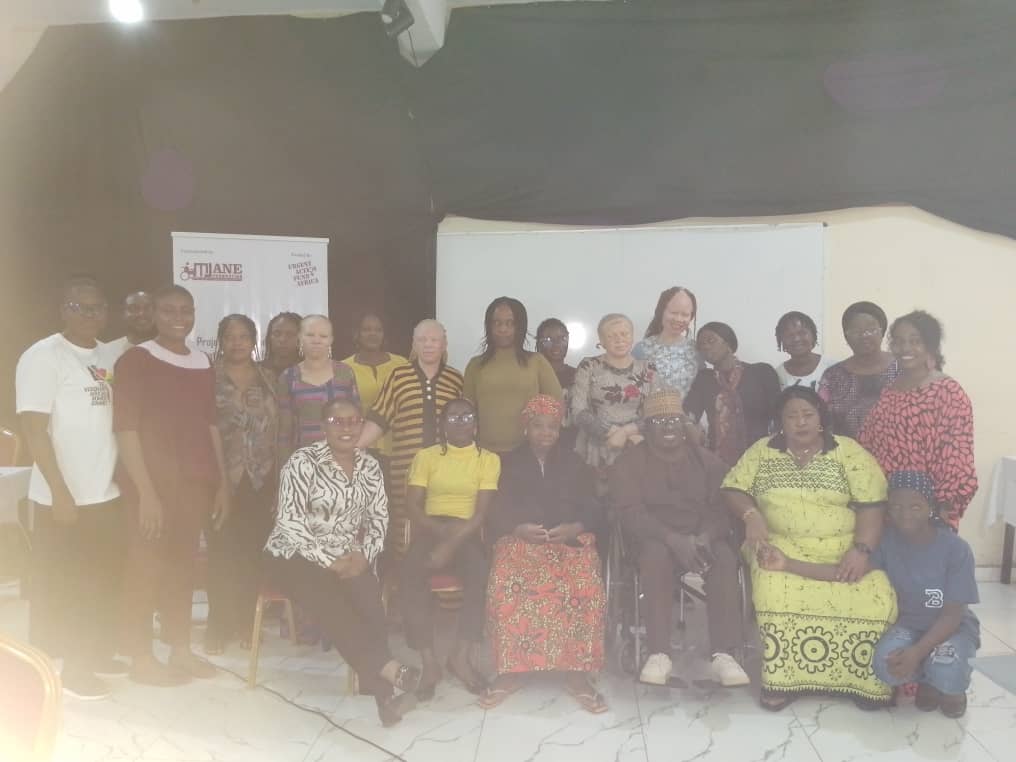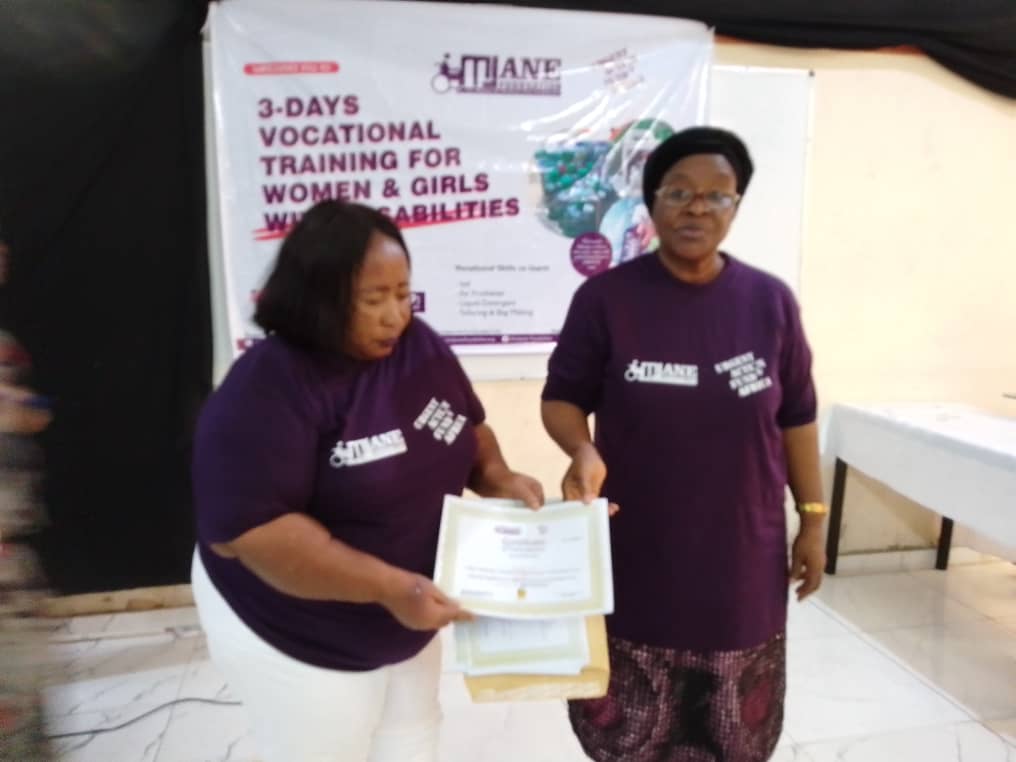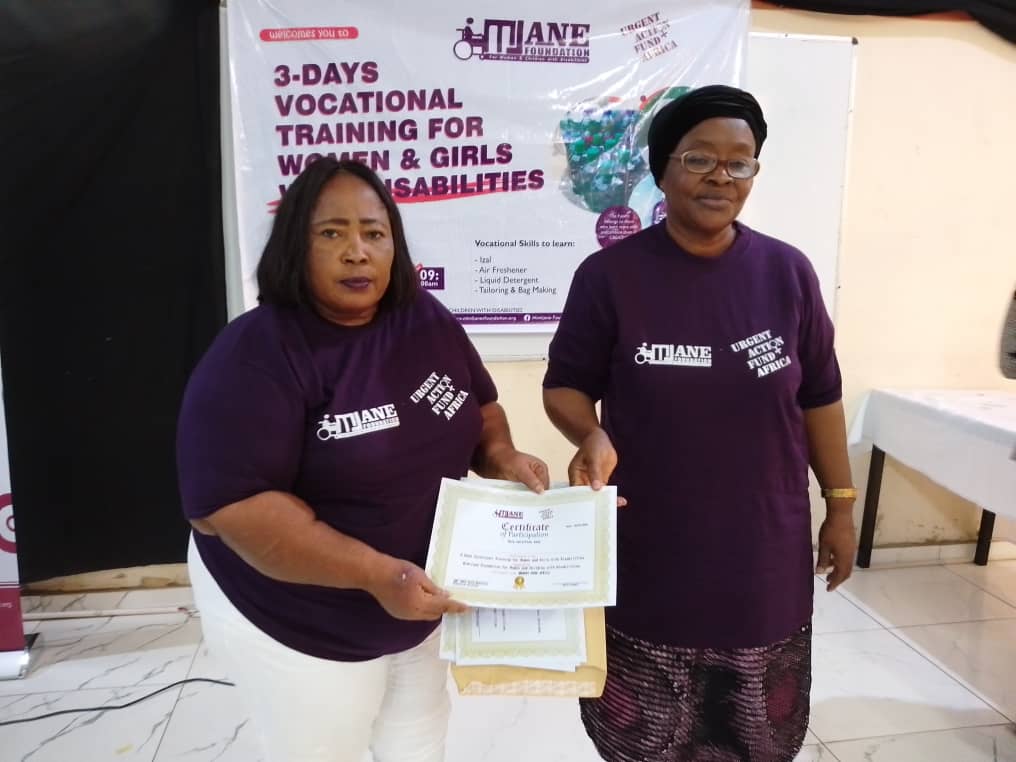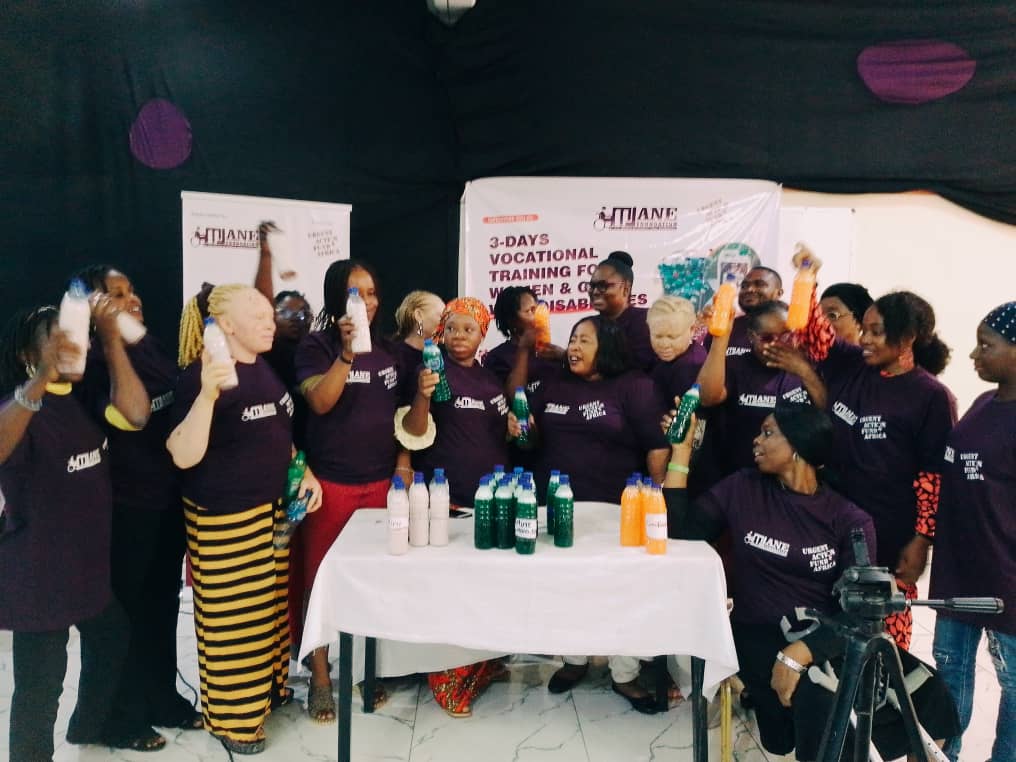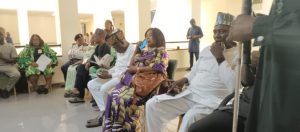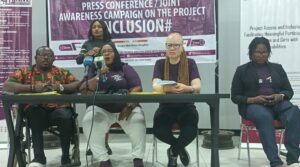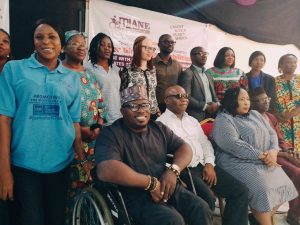From July 18th to 20th, 2024, the Mimijane Foundation for Women and Children with Disabilities held an impactful three-day vocational training program in Abuja, aimed at empowering women and girls with disabilities. Supported by the Urgent Action Fund Africa, this initiative focused on equipping participants with entrepreneurial skills to promote economic self-reliance and resilience.
Amb. Beatrice Awala Mube, the Founder and CEO of the Mimijane Foundation, opened the event with motivating remarks, emphasizing the program’s primary goal: to strengthen the entrepreneurial capabilities of women and girls with disabilities. She shared her personal journey, highlighting her experiences in soap making, perfumes, and air fresheners.
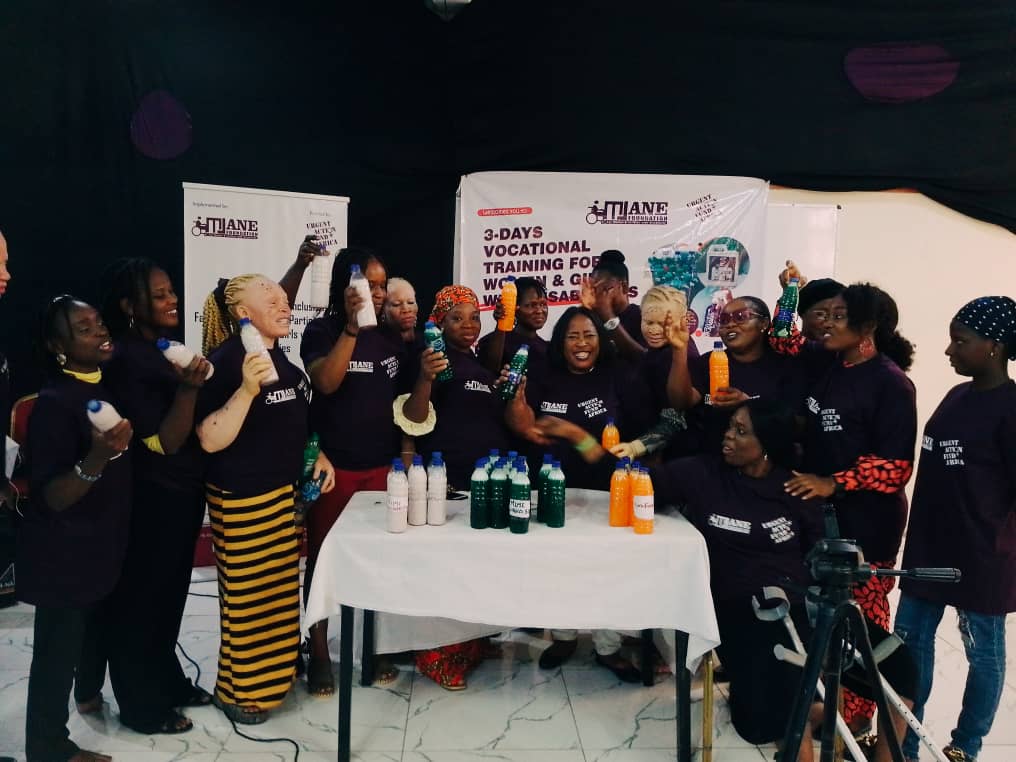
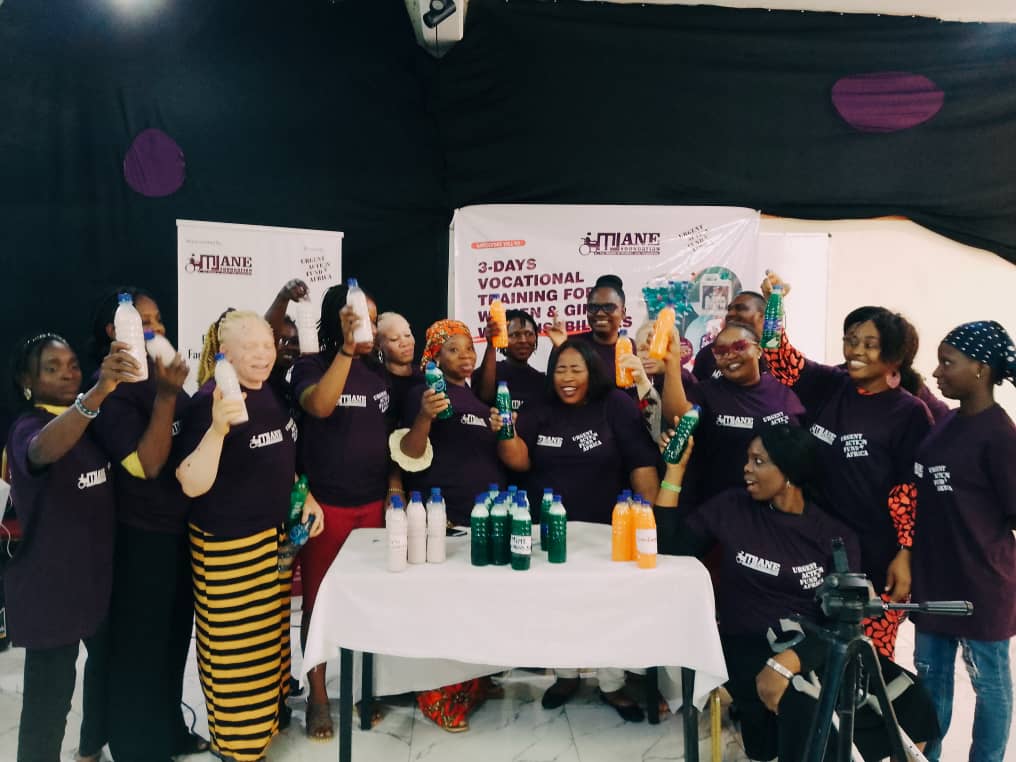
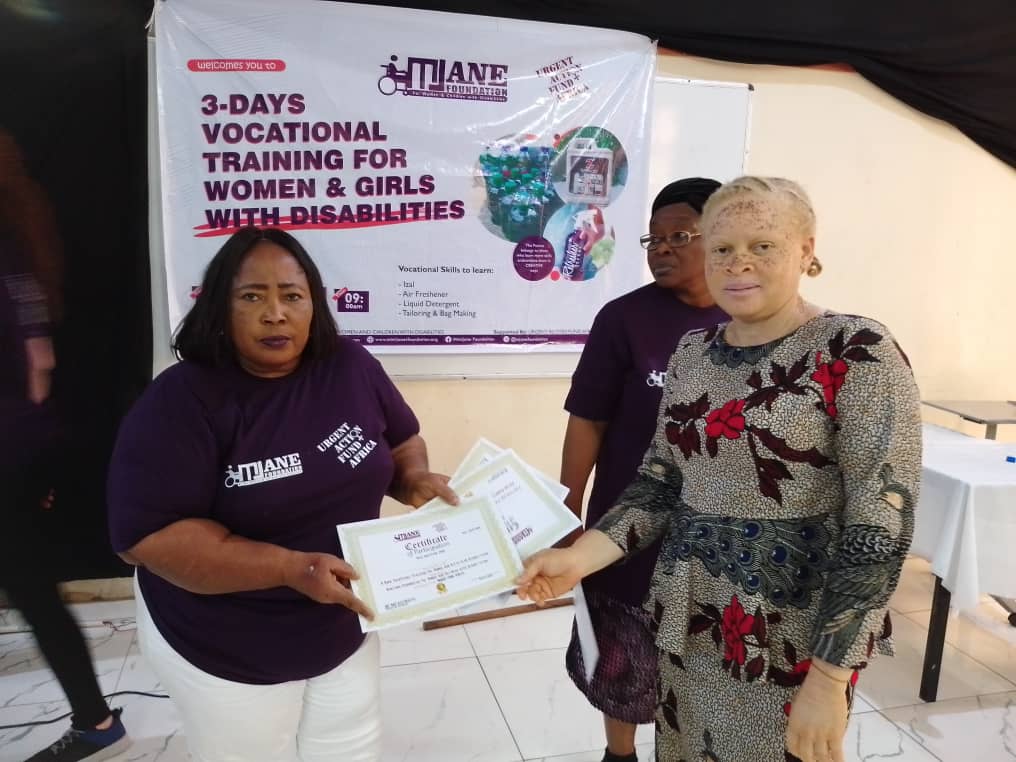
“I seized the chance to be trained by a missionary, even though I was a civil servant,” she recalled. “I opted for weekend classes, extending what was originally a six-month course into twelve months. The experience was challenging but ultimately very rewarding. Today, I supply hotels with products made right in my kitchen.”
Amb. Mube also addressed the many challenges faced by women with disabilities, including transportation difficulties and societal attitudes. She encouraged participants to persist despite these obstacles. “Times are tough in Nigeria. Being a woman often means being treated as a second-class citizen, and having a disability puts you in an even more challenging position. Your voice is often unheard, and your opinions may not count,” she noted. Nonetheless, she urged them to take their efforts seriously, stressing that adding value to oneself can transform an individual from a liability into an asset within their family and community.
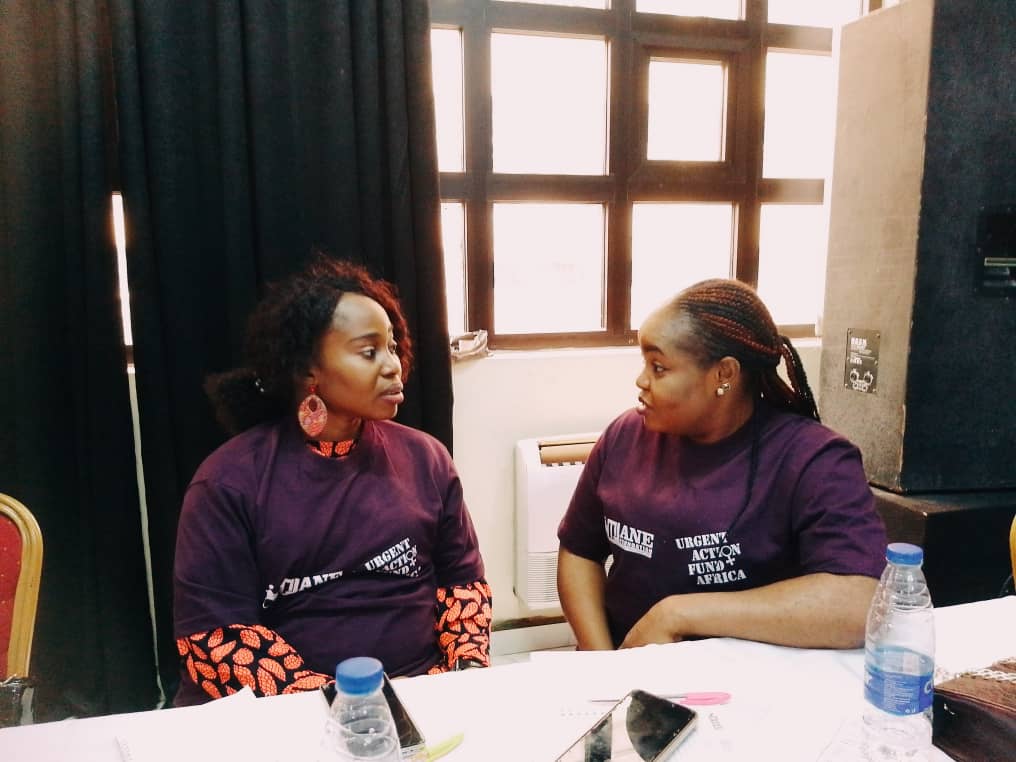
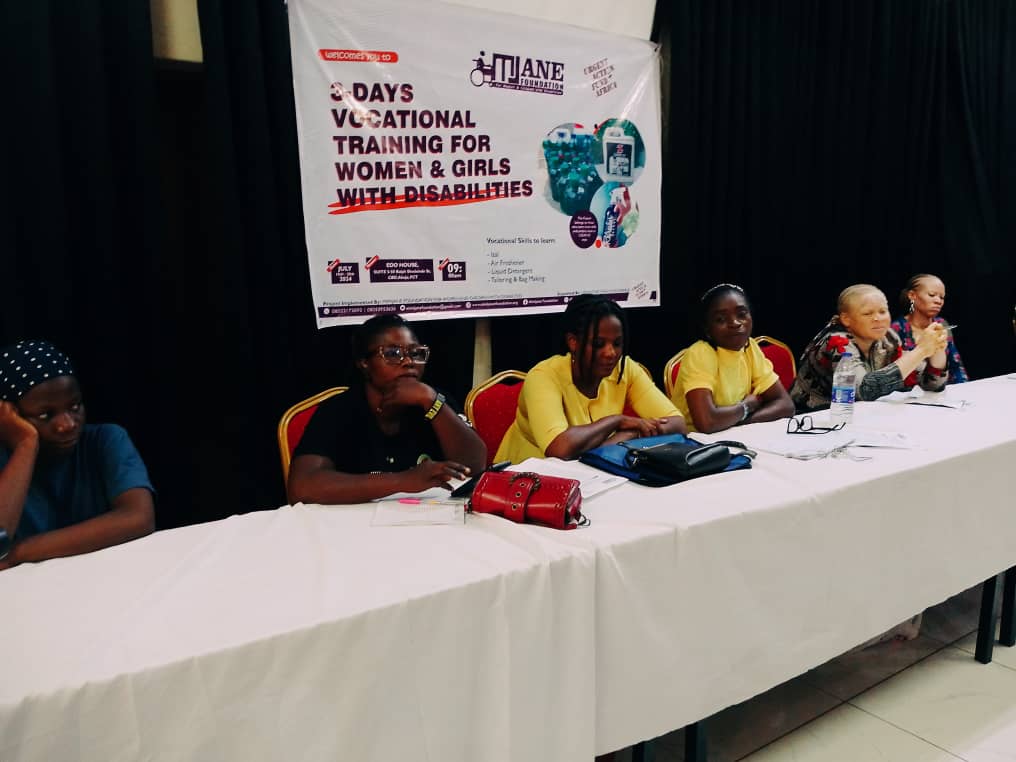
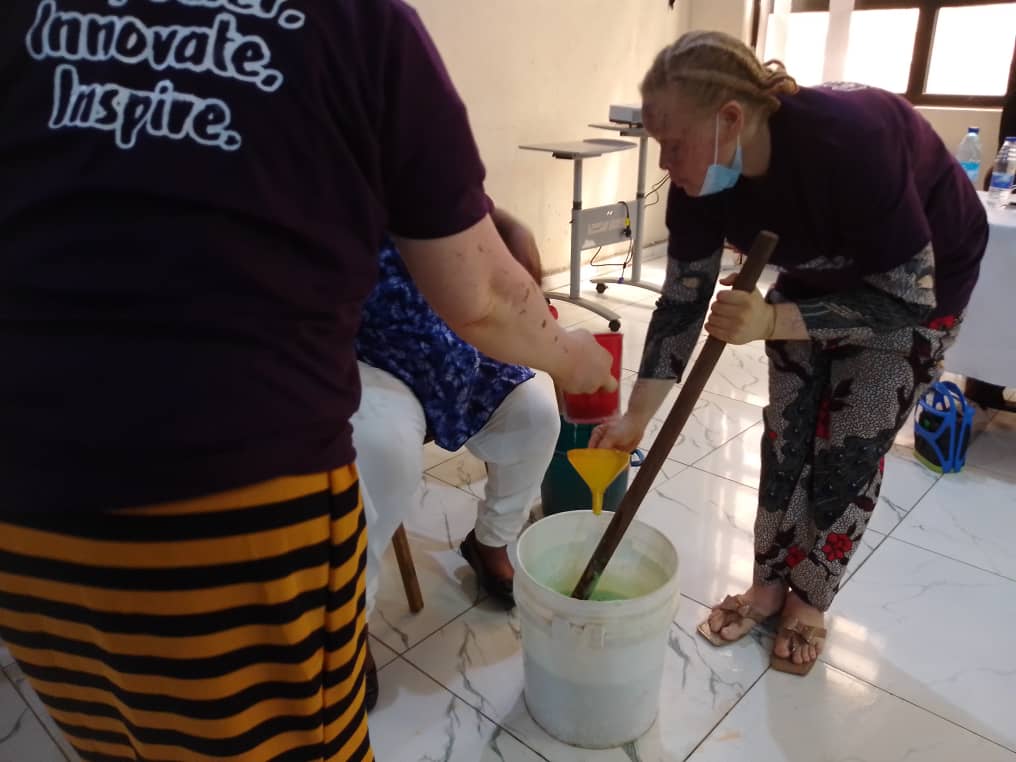
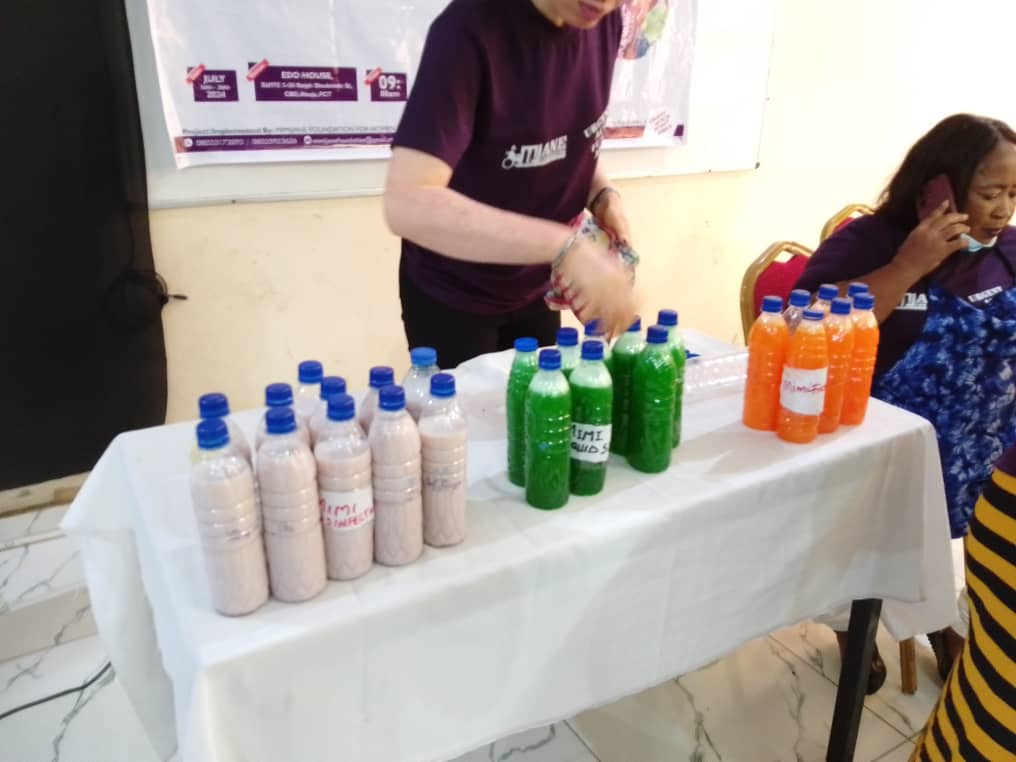
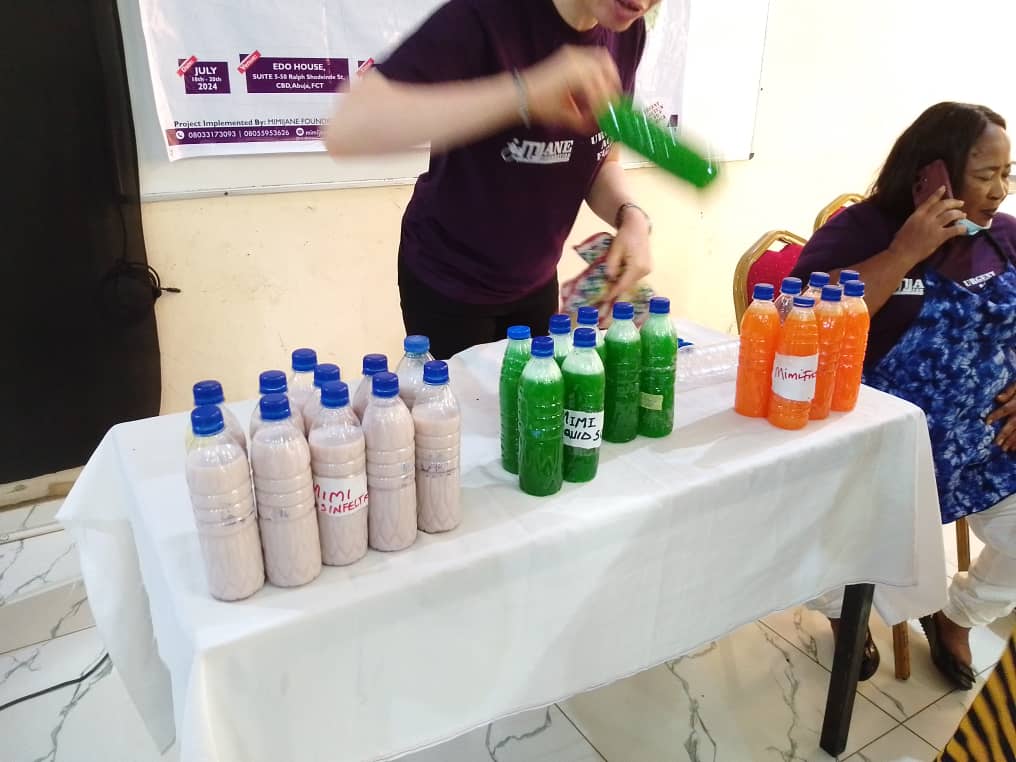
“Your family will appreciate and respect you when you have something productive to contribute. Start small, work hard, and you will certainly grow,” Amb. Mube advised. She explained that the event was designed to give participants the insights and skills needed to rebrand their businesses and create strategies for economic empowerment.
The program included several expert-led sessions, one of which was by MaryJane Ujunwa Okeke, CEO of Mjcharis Fashion World. As a successful fashion designer with a disability, Okeke shared her story, offering practical advice on succeeding in the fashion industry despite the challenges posed by disability. Her session was rich with examples and real-life experiences, providing valuable insights for the participants.
Another key feature of the event was a virtual session led by Dr. Dotun Akinseinde, a Global Entrepreneurship Bootcamp Alumni from the Massachusetts Institute of Technology (MIT) in Boston, USA. Through Zoom, Dr. Akinseinde guided participants in entrepreneurship development, using their case studies to tackle business challenges and explore strategies for improvement.
Agatha Ola Egwu, CEO of Stepholagold Enterprise and a woman with a disability, led a session on bag making. She detailed the processes involved, discussed the challenges faced in the business, and provided strategies for overcoming these obstacles to achieve success. Her practical insights were well received by the participants.
The training concluded with a hands-on session led by Amb. Beatrice Awala Mube, focusing on the production of liquid soap, air fresheners, and izal. This practical component allowed participants to apply their newly acquired knowledge and skills, reinforcing the lessons learned throughout the program.
The Mimijane Foundation’s vocational training initiative serves as a beacon of hope and empowerment for women and girls with disabilities in Abuja. By providing them with the tools and knowledge needed to succeed in entrepreneurship, the foundation is playing a vital role in breaking down barriers and fostering a more inclusive and equitable society.
